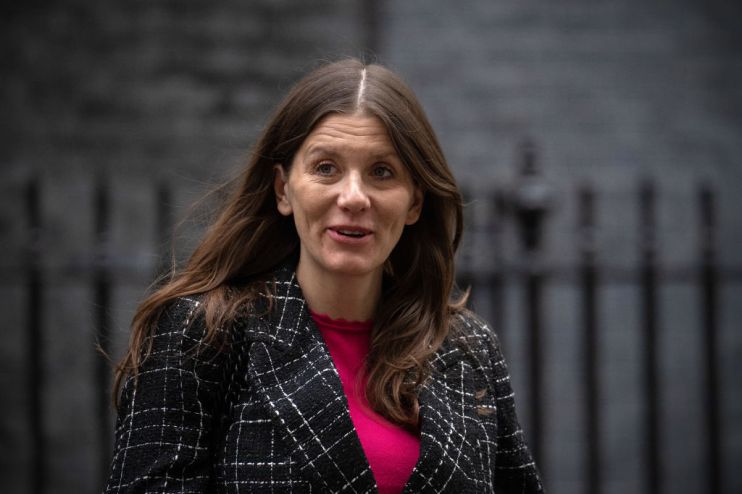As a government, we need to bring tech success to ordinary Brits’ lives

In my new role as Technology Secretary, it won’t surprise you to hear that I get hundreds of emails, and many of them end with that familiar automated line “sent from my iPhone”. I am sure everyone reading this will have had the same, and never thought twice about it.
But this week, as I was thinking about the mammoth task my new department is setting out on – to make the UK a science and technology superpower – that one automated line got me thinking about what this country is capable of.
Not many people who sent those emails to me will realise that every word and letter they sent me went through a microprocessor in their iPhone that was partially designed in Britain, nor that the complex programming language that their phone used was first invented on these shores. The World Wide Web on which I read the email – one of the greatest inventions of all time – was quietly invented here in Britain. Even the lightbulbs illuminating my screen as I read each email, and the lithium-ion battery that powers it all – all British inventions.
When we look around the modern world it is easy to lose sight of the seismic impact our country has had on technology and innovation over the years. For many of us, British innovation brings to mind black and white images of steam engines and telephones. We think of Newton and Brunel, Baird and Bell. But the reality is that Britain’s most incredible days of innovation are not in our past – the are happening right now.
Just last year, we passed an extraordinary milestone without really noticing it – we joined only the United States and China in having a tech sector worth over $1trillion. We beat China, Japan, Korea France and Germany in the innovation rankings, and produced more billion-dollar companies in eight of our cities than the whole of France and Germany did – combined!
But frankly, all of the favourable international comparisons and league tables in the world mean nothing in my view unless they translate into actual, tangible benefits for the British people. By that I mean better healthcare, faster and cleaner transport, higher paid jobs – these are the measures of a science and technology superpower – are we going to get more time with our loved ones, are we going to be able to travel to work quickly and affordably, are our children going to live in a cleaner, more prosperous world than we are?
Today I kick-start this new era by launching my Science and Technology Framework which sets out ten key things that we must do by 2030 if we are to realise our superpower goal. These include massive investment in research and development to match the scale of our ambition, using public funds to unlock billions of pounds of private sector cash. This starts today with the announcement of over £370 million worth of fresh investment into research and critical technologies like artificial intelligence, quantum computing and engineering biology with the aim of tackling some of the key priorities of the British people.
Our long history of innovation and technological advancement should remind us of what we are capable of, as should those little daily reminders of British ingenuity that are all around us in the modern world when we notice them. If we achieve what we are setting out, one day Britons of the future will look back on our society and see us as the starting gun for a Britain that lives smarter, longer, happier and healthier.
Michelle Donelan is the Secretary of State for Science, Innovation and Technology
For all the latest Lifestyle News Click Here
For the latest news and updates, follow us on Google News.

